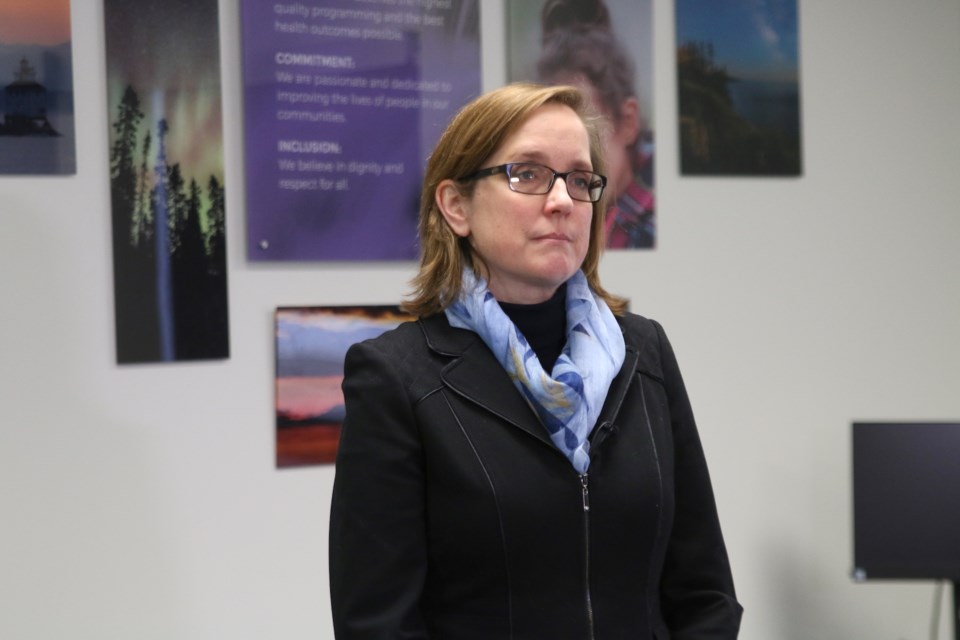THUNDER BAY — The combined impact of a resurgent flu, other respiratory illnesses, and continuing COVID-19 cases has Thunder Bay’s medical officer of health about as worried as she’s been since the arrival of COVID-19.
Dr. Janet DeMille expressed serious concern over rising health risks for young children and the potential to overwhelm hospital capacity in an interview on Tuesday.
“To me in my job, it feels as uncomfortable as some of the waves of COVID that we’ve had in the past,” she said. “I don’t think there’s really much reassuring right now, except we know this will pass.”
DeMille’s comments come a day after Ontario’s chief medical officer of health, Dr. Kieran Moore, issued a strong recommendation for residents to wear masks in indoor public spaces, but stopped short of renewing government mask mandates, amid unprecedented admissions to many children's hospitals in southern Ontario.
The lack of new mandatory masking rules was no surprise, DeMille said
“I think mandates are more difficult, overall — it can create some challenges,” she said, acknowledging those challenges are largely political.
“It has become a very polarized issue, the whole concept of mandates. Even masking, which is a very small thing overall, has been quite polarized, so that’s a big part of it, yes.”
DeMille expressed hope, however, that enough Ontarians will voluntarily heed public health advice to help reduce the spread of the viruses.
It could be necessary for the province to take “stronger measures” in the future if the picture worsens, she said.
Leaders at Thunder Bay’s regional hospital warned recently they’re already seeing a surge in respiratory infections.
Further pressure could mean longer wait times and delays to less urgent — but still often crucially important — medical procedures including surgeries, the hospital says.
At the moment, DeMille is most worried about kids four and under, who are at higher risk for the flu as well as respiratory syncytial virus (RSV).
“Right now it’s that influenza, RSV, and other respiratory viruses in the young kids, especially the babies and the toddlers,” she said. “That concerns me quite a bit, especially because the pediatric health care system is already stretched, and it doesn’t necessarily have a lot of capacity to surge.”
Adults 65 and older and those with underlying health conditions are also more vulnerable to flu and could be hit harder in later waves of infection this year, she said.
COVID-19, meanwhile, appears to have largely plateaued in the district.
“We’re not really seeing that big impact we did before, and likely that is the level of immune protection we have” both through vaccination and prior infection, DeMille said.
However, the rise of new Omicron sub-variants means COVID could become a bigger problem later in the winter, she warned.
DeMille strongly encourages residents to be vaccinated for the flu, particularly those who spend time with young children and adults 65 and older, who are at higher risk.
Early indications are that this year’s flu shot is proving effective, she said.
“What we heard from the chief medical officer of health is that there does seem to be a good match [between] the circulating strain of the flu, which is a flu H3N2, and what’s in the vaccine,” she said.
